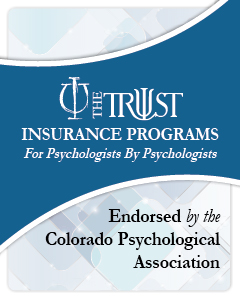Mass Shooting and Community Violence Resources
The following list of materials includes those focused on general mental health and substance use-related needs after an incident of violence, as well as separate sections listing materials specifically for children, families, and teachers, emergency responders, and for coping with trauma.
General Disaster Response and Recovery Information
- Tips for Survivors of a Disaster or Other Traumatic Event: Managing Stress—This SAMHSA tip sheet gives stress prevention and management tips for dealing with the effects of trauma, mass violence, or terrorism. It lists tips to relieve stress, describes how to know when to seek professional help, and provides accompanying resources.
https://store.samhsa.gov/product/Tips-for-Survivors-of-a-Disaster-or-Other-Traumatic-Event-Managing-Stress/SMA13-4776
This tip sheet is also available in Spanish at https://store.samhsa.gov/product/Tips-for-Survivors-of-a-Disaster-or-Other-Traumatic-Event-Managing-Stress-Spanish-Version-/SMA13-4776SPANISH. A similar tip sheet is available in Punjabi at https://store.samhsa.gov/product/Tips-for-Survivors-of-a-Traumatic-Event-Managing-Your-Stress-Punjabi-Version-/NMH05-0209PUNJABI.
- Tips for Survivors of a Disaster or Traumatic Event: What To Expect in Your Personal, Family, Work, and Financial Life—In this tip sheet, SAMHSA describes the effects that disasters and other traumatic events can have on survivors in general, and specifically on different parts of their lives. The tip sheet suggests steps to cope with a disaster or other trauma, lists signs of the need for professional mental health and substance use assistance, and identifies resources for additional information and support.
https://store.samhsa.gov/product/Tips-for-Survivors-of-a-Disaster-or-Traumatic-Event-What-to-Expect-in-Your-Personal-Family-Work-and-Financial-Life/SMA13-4775
This tip sheet is also available in Spanish at https://store.samhsa.gov/product/Tips-for-Survivors-of-a-Disaster-or-Traumatic-Event-What-to-Expect-in-Your-Personal-Family-Work-and-Financial-Life-Spanish-Version-/SMA13-4775SPANISH.
Violence and Trauma-specific Information
Resources for Children, Youth, Parents and Other Caregivers, and Schools
- Tips for Talking With and Helping Children and Youth Cope After a Disaster or Traumatic Event: A Guide for Parents, Caregivers, and Teachers—This tip sheet can help parents, caregivers, and teachers recognize and address problems in children and teens affected by a disaster. Readers can learn about signs of stress reactions that are common in young survivors at different ages, as well as how to help children through grief.
https://store.samhsa.gov/product/tips-talking-helping-children-youth-cope-after-disaster-or-traumatic-event-guide-parents/sma12-4732
A similar tip sheet is available in Punjabi at https://store.samhsa.gov/product/Tips-for-Talking-to-Children-and-Youth-After-Traumatic-Events-A-Guide-for-Parents-and-Educators-Punjabi-Version-/KEN01-0093PUNJABI.
- Helping Youth After Community Trauma: Tips for Educators—In this 1-page tip sheet, the NCTSN identifies 10 ways in which youth may react to community traumas such as natural or human-caused disasters and suggests ways for educators to respond to these reactions and support youth in coping. The tip sheet also advises educators to find professional mental health support for youth—and for themselves—as needed. https://www.nctsn.org/sites/default/files/resources/tip-sheet/helping_youth_after_community_trauma_for_educators_final_explosions.pdf
- Parent Guidelines for Helping Youth After the Recent Shooting—In this 3-page tip sheet, the NCTSN describes how a shooting may affect children and teens as well as parents and other caregivers. The tip sheet lists reactions common among people of all ages, offers coping tips for caregivers, and suggests ways for caregivers to support children and youth in coping with their reactions to a shooting. This resource is available in Spanish as well as English.
https://www.nctsn.org/resources/parent-guidelines-helping-youth-after-recent-shooting
- Tips for Parents on Media Coverage—In this 2-page tip sheet, the NCTSN explains the effects that media coverage of a violent incident may have on children and teens and suggests ways for parents and other caregivers to help children and teens manage reactions to media coverage and the violent event. The tip sheet also includes tips for families with involvement in a violent incident.
https://www.nctsn.org/sites/default/files/resources/tips_for_parents_media_coverage.pdf
Resources for Disaster Responders
- Tips for Disaster Responders: Preventing and Managing Stress—This SAMHSA tip sheet helps disaster response workers prevent and manage stress. It includes strategies to help responders prepare for their assignment, use stress-reducing precautions during the assignment, and manage stress in the recovery phase of the assignment. https://store.samhsa.gov/product/Preventing-and-Managing-Stress/SMA14-4873
This tip sheet is available in Spanish at https://store.samhsa.gov/product/Tips-for-Disaster-Responders-Preventing-And-Managing-Stress-Spanish-Version-/SMA14-4873SPANISH.
- Emergency Responders: Tips for Taking Care of Yourself—This online article from the Centers for Disease Control and Prevention (CDC) emphasizes the importance of responder self-care and presents steps responders can take before, during, and after deployment to manage stress and avoid burnout and secondary traumatic stress. Suggestions are provided for working with other responders on stress management as well as maintaining habits to support health and optimal functioning as a responder.
https://emergency.cdc.gov/coping/responders.asp
- Psychological First Aid (PFA) Online—The NCTSN offers this online course to train new disaster responders in PFA, as well as to provide a refresher training for more experienced responders who want to review this evidence-informed, practical approach to disaster response. The 6-hour course features a simulation of disaster response, demonstrations of PFA techniques, and tips from expert responders and disaster survivors.
https://learn.nctsn.org/course/index.php?categoryid=11
Additional Resource for Acute Needs
- National Suicide Prevention Lifeline—Funded by the Substance Abuse and Mental Health Services Administration, the National Suicide Prevention Lifeline is a source of support available 24/7 to people in crisis, including challenging reactions to disasters. Call 1–800–273–TALK (1–800–273–8255), or, for support in Spanish, call 1–888–628–9454.
https://suicidepreventionlifeline.org
- A traumatic event such as this is unexpected and often brings out strong emotions. People can call the SAMHSA Disaster Distress Helpline’s toll-free number (1–800–985–5990) and receive immediate counseling. This free, confidential, and multilingual crisis support service is also available via SMS (send text to 1-800-985-5990) to anyone experiencing psychological distress as a result of this event. People who call and text are connected to trained and caring professionals from crisis counseling centers in the network. Helpline staff provide confidential counseling, referrals, and other needed support services.
|

